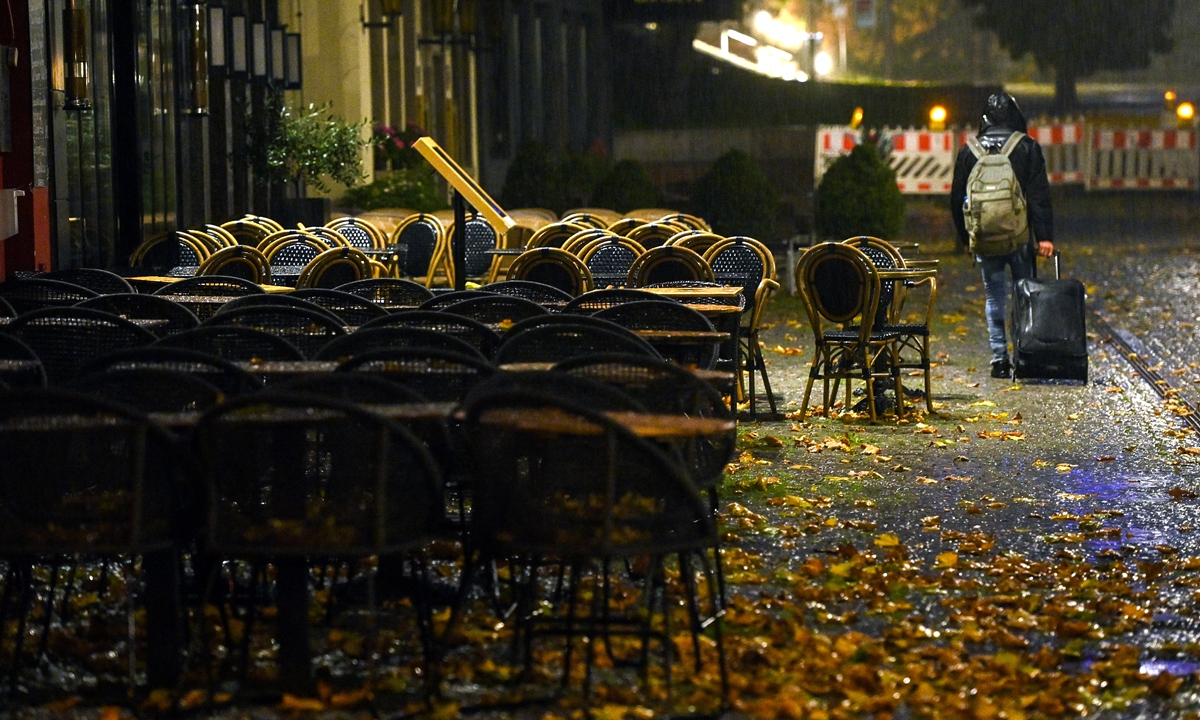New outbreak, Germany closes
Source: AFP Published: 2020/11/3 17:08:41
COVID-19 sees mandatory curbs tightened across Europe

A man pulls a suitcase past locked tables and chairs outside closed restaurants as it rains in Cologne's old town in Germany on Monday amid the COVID-19 pandemic. Photo: AFP
Despite sporadic popular protests, Germany on Monday led a tightening of coronavirus curbs in many parts of Europe while the COVID-19 crisis deepened in the US on election eve.The virus has infected over 46 million people worldwide, with more than 1.2 million deaths, and the acute outbreaks in Europe and America are sparking further alarm about the state of the already devastated global economy.
To curb the spike in Germany, Europe's biggest economy, Chancellor Angela Merkel appealed to citizens to help achieve a "turnaround" by respecting a new round of shutdowns from Monday until the end of November.
Germans will not be confined to their homes, but bars, cafes and restaurants must close, as well as theaters, operas and cinemas.
Looking ahead to the festive season, Merkel ruled out any "lavish New Year's Eve parties," but held out hope that families would be allowed to celebrate Christmas together.
The frustration over the economic and social cost of lockdowns has led to protests in many parts of the world, especially Europe, with some leading to violent skirmishes, notably in Spain and Italy as well as Czech capital Prague and the eastern German city of Dresden.
In Italy, the first European country to impose a lockdown during the first wave, Prime Minister Giuseppe Conte resisted pressure for new national stay-at-home orders in favor of an approach targeting the hardest-hit regions.
In Britain, Prime Minister Boris Johnson came under fire for a looming second lockdown in England, with employers warning it would deal a "devastating" blow to business.
Professor Andrew Hayward, a scientist advising the government on virus planning, meanwhile said that if a shorter September lockdown proposal had been heeded, it would have "inflicted substantially less damage on our economy" and "would definitely have saved thousands of lives."
Johnson vowed "no apologies" over his decision.
"I am truly sorry for the anguish these measures will impose, particularly for businesses that had just got back on their feet."
AFP
Posted in: EUROPE,CROSS-BORDERS,WORLD FOCUS